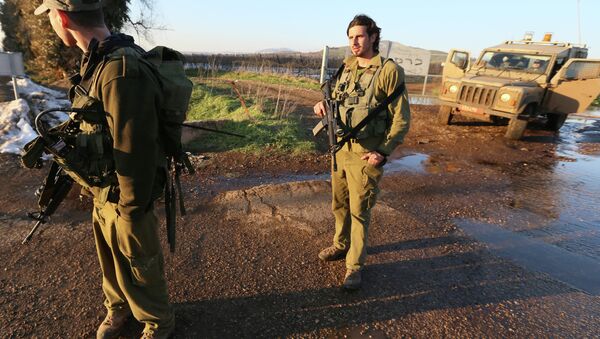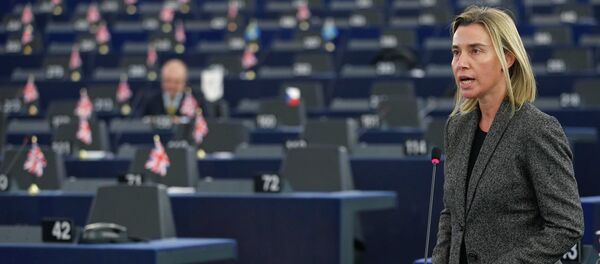MOSCOW, January 19 (Sputnik), Ekaterina Blinova — The ongoing Middle Eastern crisis is the biggest threat to Europe's security since the Cold War, deems the former head of MI6, the British intelligence service.
The former intelligence chief underscored that Islamist attacks in Europe are currently "more likely to occur" and more difficult to cope with, since thousands of Europeans who joined radical IS and al-Qaeda groups are gaining military experience and adopting the tactics of extremists. Thus far, the Charlie Hebdo massacre along with clampdowns on Islamist radicals across Europe is a "wake up call" to the "heightened threat," John Sawers noted.
The expert stressed that in the light of the growing terror threat, European governments have to impose restrictions on the use of encrypted communications inaccessible to authorities, making it impossible for criminals and radicals to conduct their activities in the global web.
"In a free society, you can't have absolute security, and in a secure society, you can't have totally unalloyed freedom. There has to be some compromise and you want to maximize them both," he said.
John Sawers is not the only expert, who is expressing deep concerns regarding the emerging terror threat inside Europe. Christopher Caldwell, a senior editor at the Weekly Standard and the author of "Reflections on the Revolution in Europe: Immigration, Islam and the West" also warns about growing anti-European stance among second- and third-generation immigrants from the Middle East. The expert points to the fact that the latest Charlie Hebdo's publication of the Prophet Mohammed cartoon was seen by the European Muslims as the "evidence not that the terrorists had failed to kill a magazine but that the French had failed to heed a warning."
Remarkably, while the nationwide march, dedicated to the victims of the Charlie Hebdo was taken place in France, bringing together up to four million people, "the working classes and the North African and West African immigrant kids weren't there," the journalist emphasizes, citing Le Temps.
Indeed, many Muslims feel alienated to Europe's culture, since they consider it "cold, dead and unsatisfying," Christopher Caldwell notes. He warns that due to the ongoing military clashes in Iraq, Syria and Yemen, thousands of youths who share the beliefs of the Kouachi brothers and Amedi Coulibaly "are now battle-hardened and heavily armed."
Alas, the European governments turn a deaf ear to the worrying signals, the journalist underscores, pointing to the fact that the French law-makers have rejected to legislate a "Patriot Act a la française," making it possible to track terror suspects.
"France, like Europe more broadly, has been careless for decades. It has not recognized that free countries are for peoples strong enough to defend them," insists Christopher Caldwell.
"We should be worried about the entirety of the region," he said, adding that while the attention of the international community was concentrated on Iraq and Syria, Libya and Yemen were turning into new terrorism hotbeds.
"At the moment, most of the conflict in Libya is internally focused… but obviously there is an environment there that could be conducive to terrorist organizations. There is a serious problem in the south. Every effort needs to be made to try to stabilize the country before that threat spreads elsewhere," the former intelligence chief told the Financial Times.
On the other hand, the expert admitted that over the past 15 years the West failed to "impose new solutions" on the Middle Eastern states, stressing that he believes they should find their own way forward.
"The world is much harder to predict. It's much harder to navigate your way through the fragmentation of power and politics and ideas," the ex-chief of MI6 concluded.




